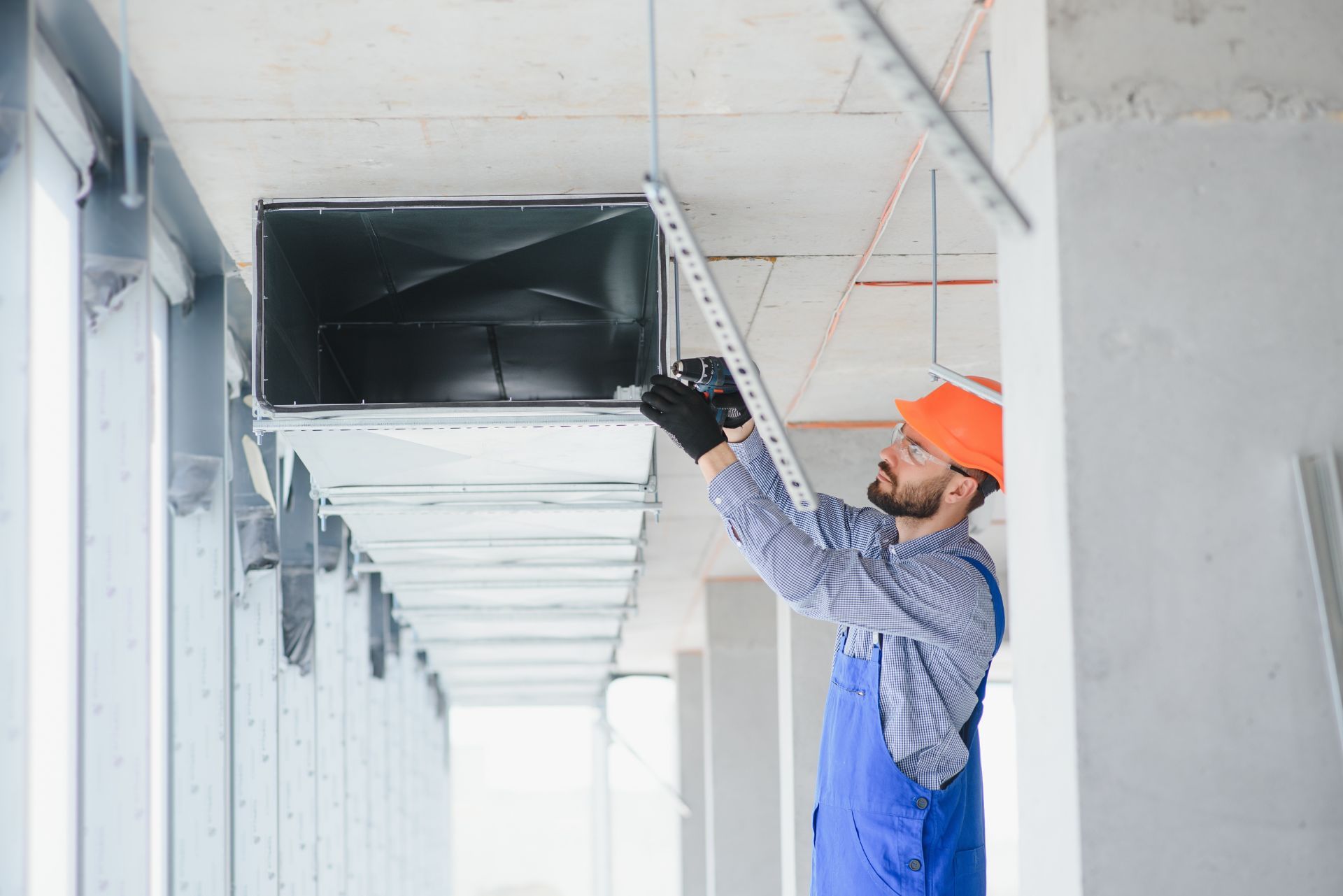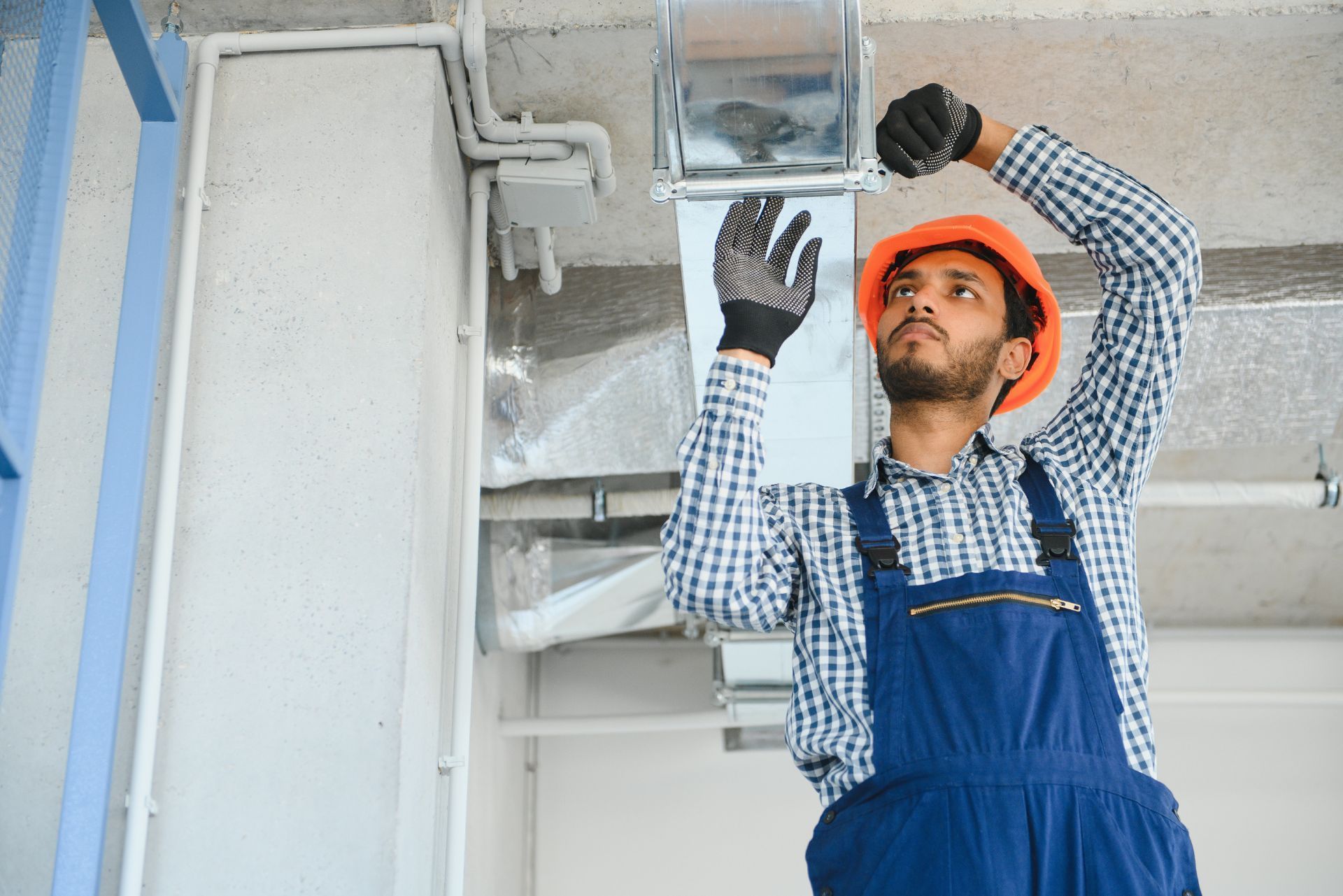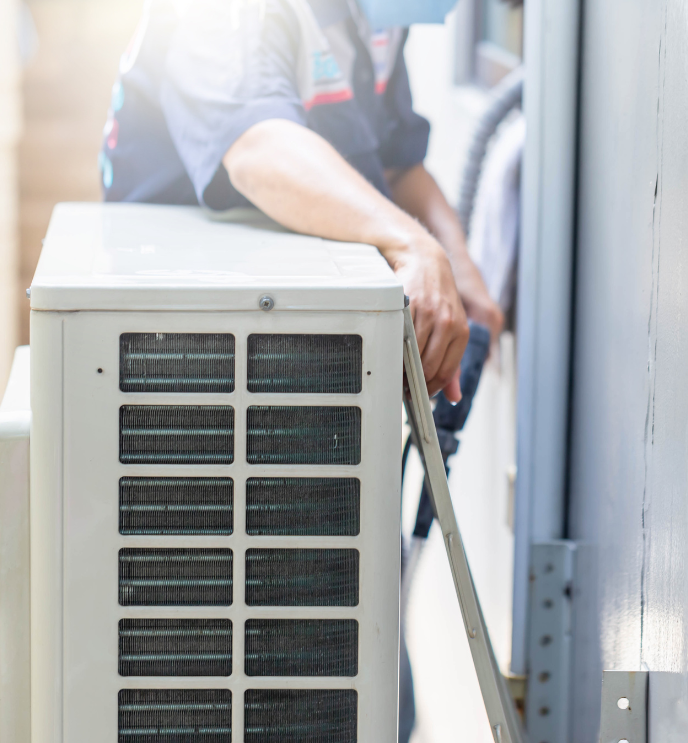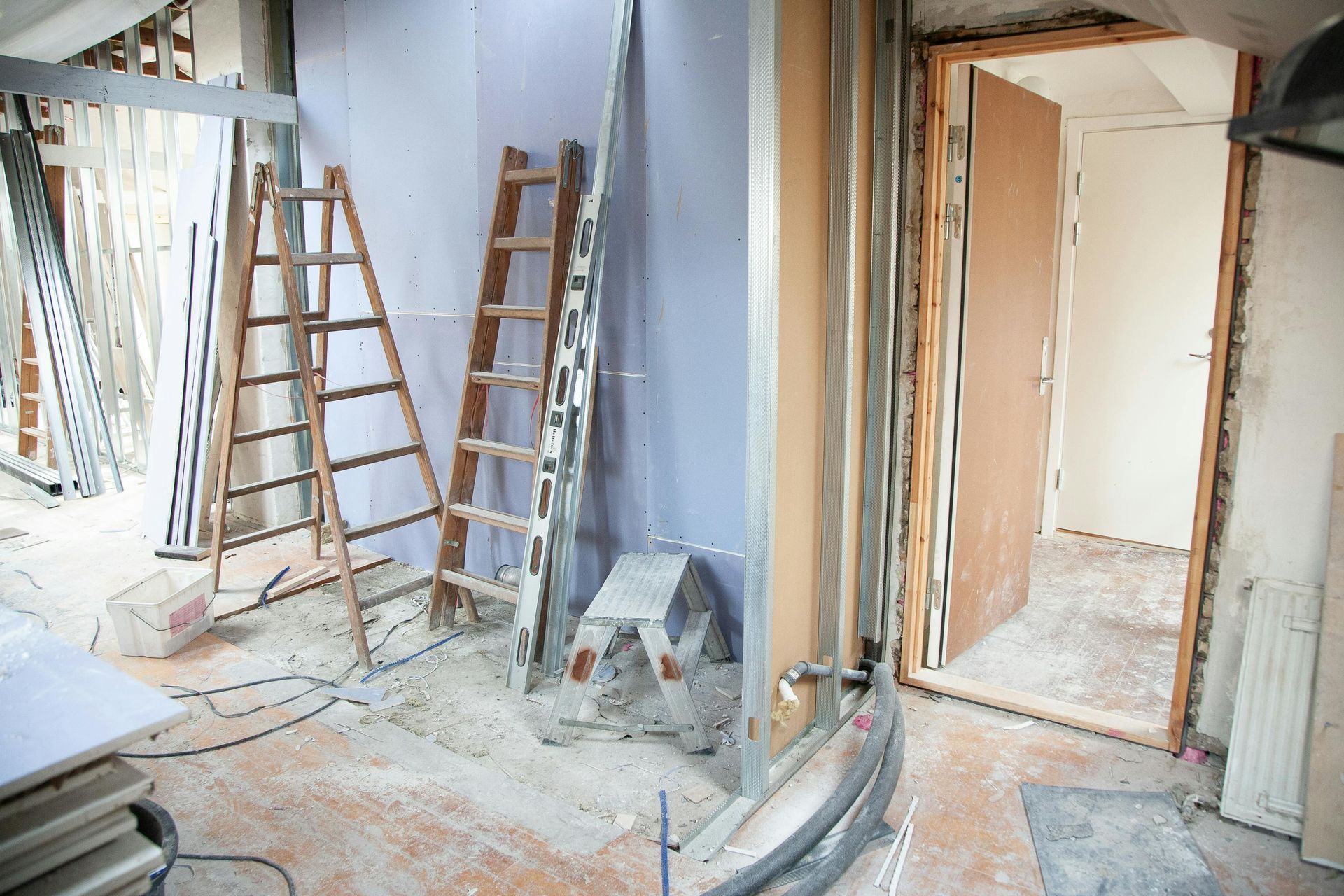Ventilation System Contractor Insurance
See How We're Different
or call us: 888-988-2347
Types of Contractors We Serve
Jonathan Behr
Owner of Contractor Insurance Pros by Behr Insurance Services
Index
Contact Us
Phone
Location
Simi Valley, CA 93065
The Woodlands, TX 77382
Katy, TX 77494
In the world of construction and contracting, ensuring the safety and security of both the workers and the business is paramount. For ventilation system contractors, this means having the right insurance coverage tailored to the unique risks associated with their work. Ventilation system contractors specialize in the installation, maintenance, and repair of ventilation systems, which are crucial for maintaining air quality and comfort in residential and commercial buildings. This article delves into the various aspects of contractor insurance specifically for those in the ventilation system industry.
Understanding the Importance of Insurance
Insurance serves as a safety net for contractors, protecting them from unforeseen circumstances that could lead to significant financial losses. For ventilation system contractors, the risks can vary widely, from property damage to workplace injuries. Having the right insurance coverage not only safeguards the business but also enhances its credibility in the eyes of clients. Moreover, in an industry where projects can often be complex and multifaceted, the peace of mind that comes from knowing you are covered can allow contractors to take on more ambitious projects without the looming fear of potential liabilities.
Risk Management
Every contractor faces risks, but those in the ventilation sector encounter specific challenges. These can include accidental damage to property during installation, injuries sustained by workers, and even liability claims from dissatisfied clients. Effective risk management through insurance helps mitigate these issues, allowing contractors to focus on their core business operations without the constant fear of financial ruin. Additionally, investing in risk management strategies, such as safety training and regular equipment maintenance, can further reduce the likelihood of incidents, thus lowering insurance premiums over time and fostering a safer work environment.
Client Trust and Credibility
In a competitive market, having comprehensive insurance coverage can set a contractor apart from the competition. Clients are more likely to trust a contractor who is insured, as it demonstrates professionalism and a commitment to safety. This trust can lead to more contracts and repeat business, ultimately contributing to the growth of the contractor's reputation and business. Furthermore, many clients now require proof of insurance before awarding contracts, making it not just a benefit but a necessity for contractors aiming to secure lucrative projects. By showcasing their insurance credentials, contractors can also engage in more transparent discussions with clients, addressing any concerns about potential risks and reinforcing their reliability as service providers.

Types of Insurance for Ventilation System Contractors
There are several types of insurance that ventilation system contractors should consider. Each type serves a specific purpose and addresses different aspects of risk management. Understanding these options is crucial for selecting the right coverage.
General Liability Insurance
General liability insurance is one of the most essential types of coverage for contractors. It protects against claims of bodily injury, property damage, and personal injury that may arise during the course of business operations. For ventilation system contractors, this type of insurance is critical, as it covers incidents that could occur on job sites, such as a worker accidentally damaging a client's property or a visitor getting injured while on site. Furthermore, general liability insurance can also cover legal fees and settlements if a contractor is sued, providing an added layer of financial security that can be crucial for small businesses trying to navigate the complexities of legal claims.
Workers' Compensation Insurance
Workers' compensation insurance is designed to provide financial support to employees who are injured on the job. This coverage is not only a legal requirement in many states but also serves to protect contractors from potential lawsuits related to workplace injuries. For ventilation system contractors, who often work in physically demanding environments, having workers' compensation insurance is vital for ensuring the well-being of their workforce. Additionally, this insurance can help cover medical expenses and rehabilitation costs, allowing injured workers to focus on recovery without the added stress of financial burdens. By investing in workers' compensation, contractors also foster a safer work environment, which can enhance employee morale and productivity.
Commercial Auto Insurance
For contractors who use vehicles to transport equipment and personnel, commercial auto insurance is a must-have. This type of insurance covers vehicles used for business purposes, protecting against accidents, theft, and damage. Ventilation system contractors often travel to various job sites, making reliable auto insurance essential for maintaining operational efficiency. Beyond just covering accidents, commercial auto insurance can also provide liability coverage in the event that a contractor's vehicle is involved in an incident that causes injury to others or damage to their property. This is particularly important in urban areas where traffic accidents are more common, and the potential for costly claims can be significant. Moreover, some policies may offer additional benefits such as roadside assistance or rental vehicle coverage, further ensuring that contractors can continue their work without significant interruptions.
In addition to the primary insurance types mentioned, there are several other coverage options that ventilation system contractors may want to consider. These can provide additional layers of protection tailored to specific business needs.
Professional Liability Insurance
Professional liability insurance, also known as errors and omissions insurance, protects contractors against claims of negligence or inadequate work. For ventilation system contractors, this type of coverage is particularly important, as it addresses issues that may arise from design flaws or improper installation of ventilation systems. Having this insurance can help mitigate the financial impact of legal disputes with clients. Furthermore, it not only covers legal fees but also compensates for any settlements or judgments that may arise from such claims, ensuring that contractors can focus on their work without the constant worry of potential lawsuits.
Equipment Insurance
Ventilation system contractors rely on specialized tools and equipment to perform their jobs effectively. Equipment insurance covers the loss or damage of these essential items, whether due to theft, vandalism, or accidental damage. This coverage ensures that contractors can quickly replace or repair their equipment, minimizing downtime and maintaining productivity. Additionally, many equipment insurance policies offer coverage for rental costs if a contractor needs to temporarily lease equipment while theirs is being repaired or replaced, further ensuring that projects stay on schedule and clients remain satisfied.
Business Interruption Insurance
Business interruption insurance provides financial support in the event that a contractor's operations are halted due to unforeseen circumstances, such as natural disasters or significant equipment failure. This coverage can help cover ongoing expenses, such as payroll and rent, during periods of inactivity, allowing contractors to recover more quickly and resume operations. Moreover, this type of insurance can also include coverage for lost revenue, which can be crucial for maintaining cash flow during difficult times. By having this safety net in place, contractors can ensure that they are better prepared for unexpected challenges that could otherwise jeopardize their business stability.
Cyber Liability Insurance
In today's digital age, cyber liability insurance has become increasingly relevant for contractors who manage sensitive client information or utilize technology in their operations. This coverage protects against data breaches, cyberattacks, and other online threats that could compromise business operations or client privacy. For ventilation system contractors, who may store client blueprints or financial information electronically, having this insurance can safeguard against the financial repercussions of a cyber incident. Additionally, it often includes resources for crisis management and legal support, helping contractors navigate the complexities of a cyber event effectively.
Choosing the Right Insurance Provider
Selecting the right insurance provider is a critical step for ventilation system contractors. The right partner can make a significant difference in terms of coverage options, customer service, and claims handling.
Assessing Coverage Options
When evaluating potential insurance providers, it’s essential to assess the coverage options they offer. Contractors should look for providers that specialize in construction and contracting insurance, as they will have a better understanding of the unique risks associated with the industry. Additionally, contractors should inquire about customizable policies that can be tailored to their specific needs. This flexibility is vital, as it allows contractors to address specific scenarios they may encounter, such as equipment breakdown, liability for subcontractors, or coverage for specialized tools and machinery. Understanding the nuances of these options can help contractors avoid gaps in coverage that could lead to significant financial repercussions.
Evaluating Customer Service
Customer service is a crucial aspect of any insurance relationship. Contractors should seek providers known for their responsiveness and support. A reliable insurance company will be available to answer questions, assist with claims, and provide guidance when needed. Reading customer reviews and seeking recommendations can help identify providers with a strong reputation for service. Furthermore, it’s beneficial to assess the availability of resources such as online portals or mobile apps that can facilitate communication and provide easy access to policy information. A provider that prioritizes customer engagement and offers educational resources can empower contractors to make informed decisions about their coverage and risk management strategies.
Understanding Claims Process
Before committing to an insurance provider, contractors should take the time to understand the claims process. A straightforward and efficient claims process can save contractors valuable time and reduce stress in the event of an incident. Inquire about the average time it takes to process claims and what documentation is required to ensure a smooth experience. Additionally, it may be helpful to ask about the provider's history with claims disputes and how they handle situations where claims are denied. Understanding the nuances of the claims process, including any potential pitfalls, can prepare contractors for the unexpected and ensure that they are not left in a lurch when they need support the most. Moreover, some providers may offer dedicated claims representatives who can guide contractors through the process, making it easier to navigate the complexities of filing a claim while minimizing downtime on projects.
Cost Considerations
The cost of insurance is a significant factor for many contractors. Understanding the various elements that influence insurance premiums can help ventilation system contractors make informed decisions about their coverage.
Factors Affecting Premiums
Several factors can impact the cost of insurance premiums for ventilation system contractors. These include the size of the business, the number of employees, the types of services offered, and the contractor's claims history. Generally, businesses with a higher risk profile may face higher premiums, while those with a strong safety record may benefit from lower rates. Additionally, the geographical location of the business can also play a crucial role; areas prone to natural disasters or high crime rates may see increased premiums as insurers account for the higher likelihood of claims.
Bundling Policies for Savings
Many insurance providers offer discounts for bundling multiple policies together. Ventilation system contractors may find it cost-effective to purchase general liability, workers' compensation, and commercial auto insurance from the same provider. Bundling can lead to significant savings while simplifying the management of insurance policies. Furthermore, some insurers provide tailored packages specifically designed for contractors, which can include specialized coverage options, such as equipment breakdown or professional liability, ensuring that all aspects of the business are comprehensively covered.
Regularly Reviewing Coverage
As a business grows and evolves, so too do its insurance needs. Regularly reviewing coverage ensures that contractors are adequately protected against emerging risks and changes in operations. This proactive approach can help prevent gaps in coverage and ensure that the business is prepared for any eventualities. Engaging with an insurance broker who understands the specific needs of the ventilation industry can be invaluable. They can provide insights into industry trends, recommend necessary adjustments to coverage, and help contractors navigate the complexities of policy terms and conditions to ensure they are not underinsured or overpaying for unnecessary coverage.

Legal Requirements and Compliance
Ventilation system contractors must adhere to various legal requirements and regulations regarding insurance. Understanding these obligations is crucial for maintaining compliance and avoiding potential legal issues. Failure to comply with these legal standards can result in significant financial repercussions and damage to a contractor's reputation, making it essential for professionals in this field to prioritize their understanding of the law.
State-Specific Requirements
Insurance requirements can vary significantly by state. Many states mandate that contractors carry specific types of insurance, such as workers' compensation and general liability. Contractors should familiarize themselves with their state’s regulations to ensure compliance and avoid fines or penalties. Furthermore, some states may have additional requirements based on the nature of the work being performed, such as specialized insurance for hazardous materials or environmental liability coverage. It is advisable for contractors to consult with legal experts or insurance professionals to ensure they have the appropriate coverage tailored to their specific operational needs.
Licensing and Bonding
In addition to insurance, many states require contractors to obtain licenses and bonds to operate legally. Licensing typically involves meeting certain educational and experience requirements, while bonding provides financial protection for clients in case the contractor fails to fulfill their obligations. Understanding these requirements is essential for maintaining a reputable and compliant business. The bonding process often requires contractors to demonstrate their financial stability and reliability, which can enhance their credibility in the eyes of potential clients. Additionally, some states offer reciprocity agreements that allow contractors licensed in one state to operate in another, provided they meet certain conditions, thus expanding their business opportunities.
Staying Informed on Industry Changes
The construction industry is constantly evolving, and staying informed about changes in regulations and insurance requirements is crucial for contractors. Engaging with industry associations, attending workshops, and following relevant news sources can help contractors remain up-to-date on best practices and compliance standards. Moreover, many states provide resources and updates through official websites or newsletters, which can serve as valuable tools for contractors looking to stay ahead of the curve. Networking with other professionals in the field can also provide insights into emerging trends and legislative changes that may impact business operations. By fostering a culture of continuous learning and adaptation, contractors can not only ensure compliance but also position themselves as leaders in the industry.
Conclusion
For ventilation system contractors, having the right insurance coverage is a fundamental aspect of running a successful business. From protecting against liability claims to ensuring the safety of workers, insurance serves as a vital safety net in an industry fraught with risks. By understanding the various types of coverage available, choosing the right insurance provider, and staying informed about legal requirements, contractors can safeguard their operations and focus on delivering quality services to their clients.
Investing in comprehensive insurance not only protects the business but also enhances its credibility and fosters trust among clients. As the ventilation industry continues to grow and evolve, staying proactive about insurance needs will be essential for long-term success. By prioritizing safety and compliance, ventilation system contractors can secure their future in a competitive marketplace.
Areas we serve









